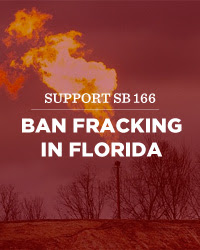The loosened regulations will reportedly ‘please domestic oil drillers, foreign trade partners, and some Republicans’

Opening the door to U.S. crude exports is expected to give relief to some domestic drillers who have been forced to sell their shale oil at a discount of as much as $15 a barrel versus global markets as fast-rising domestic supplies overwhelm local demand. (Photo: WildEarth Guardians/flickr/cc)
Despite warnings about how such a move could accelerate climate change, the Obama administration has quietly loosened its regulations on crude oil exports, “opening the floodgates” for the shipment of as much as a million barrels per day of ultra-light crude, also known as condensate, to the rest of the world.
The obscure rule change by the Department of Commerce “will likely please domestic oil drillers, foreign trade partners and some Republicans who have urged Obama to loosen the export ban,” Reuters reports. “The latest measures were wrapped in regulatory jargon and couched by some as a basic clarification of existing rules, but analysts said the message was unambiguous: a green light for any company willing and able to process their light condensate crude through a distillation tower, a simple piece of oilfield kit.”
According to Bloomberg:
The guidelines could “open the floodgates to substantial increases in exports,” Citigroup Inc. said in a research note. Total U.S. production of light and ultra-light crude oil now exceeds 3.81 million barrels a day, and exports could reach 1 million barrels daily by the end of 2015, Citi Research said.
…In addition to approving applications, the government also allows companies to “self-certify,” that is, to export their products without seeking the permission if they think the law allows for the exchange.
Officials were quick to point out that most untreated crude is still covered by the existing ban.
“It’s a long way from here to a full repeal of the export ban, and they went out of their way to stipulate that this is not, in their view, crude oil,” Jeff Navin, a former deputy chief of staff at the Energy Department, said in an e-mail to Bloomberg. “But it does show how they’re thinking about exporting at least some of our light products.”
But earlier this year, environmental watchdogs warned that any loosening of the decades-old ban on crude oil exports could lead to the release of billions of tons of additional carbon dioxide in the atmosphere.
“Allowing U.S. crude oil exports will result in increased profits that will in turn result in increased oil production,” read a report (pdf) by Oil Change International, Lifting the Ban, Cooking the Climate. “In the midst of President Obama’s ‘All of the Above’ energy strategy, the ban on crude oil exports is one of the few policies in place that effectively limits oil and gas extraction and protects our climate. The Obama Administration and the U.S. Congress must take a stand for the climate and resolve to leave the crude oil export ban intact.”
As Andy Rowell, of Oil Change International, pointed out in October, the U.S. Government Accountability Office has recommended against lifting the ban, saying greenhouse gas emissions would rise if the ban was lifted—an outcome with serious implications for the climate and environment.
“It is important to remember what the GAO said last week in its report,” Rowell wrote. “It argued that ‘additional crude oil production may pose risks to the quality and quantity of surface groundwater sources; increase greenhouse gas and other emissions; and increase the risk of spills from crude oil transportation’.”


